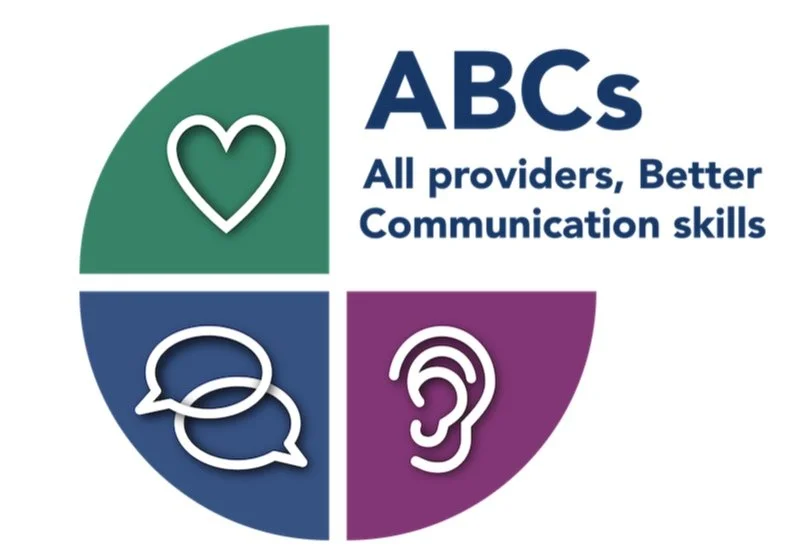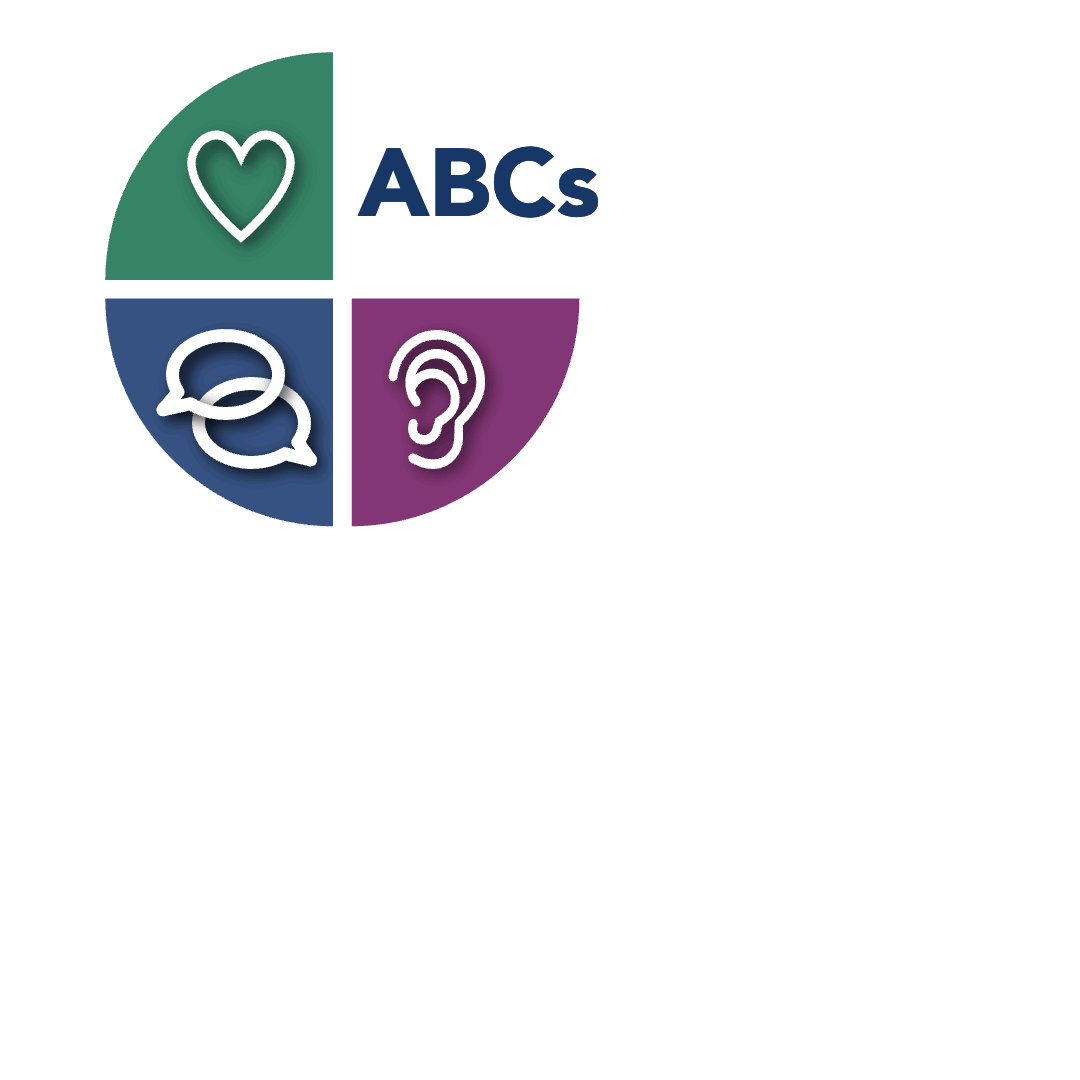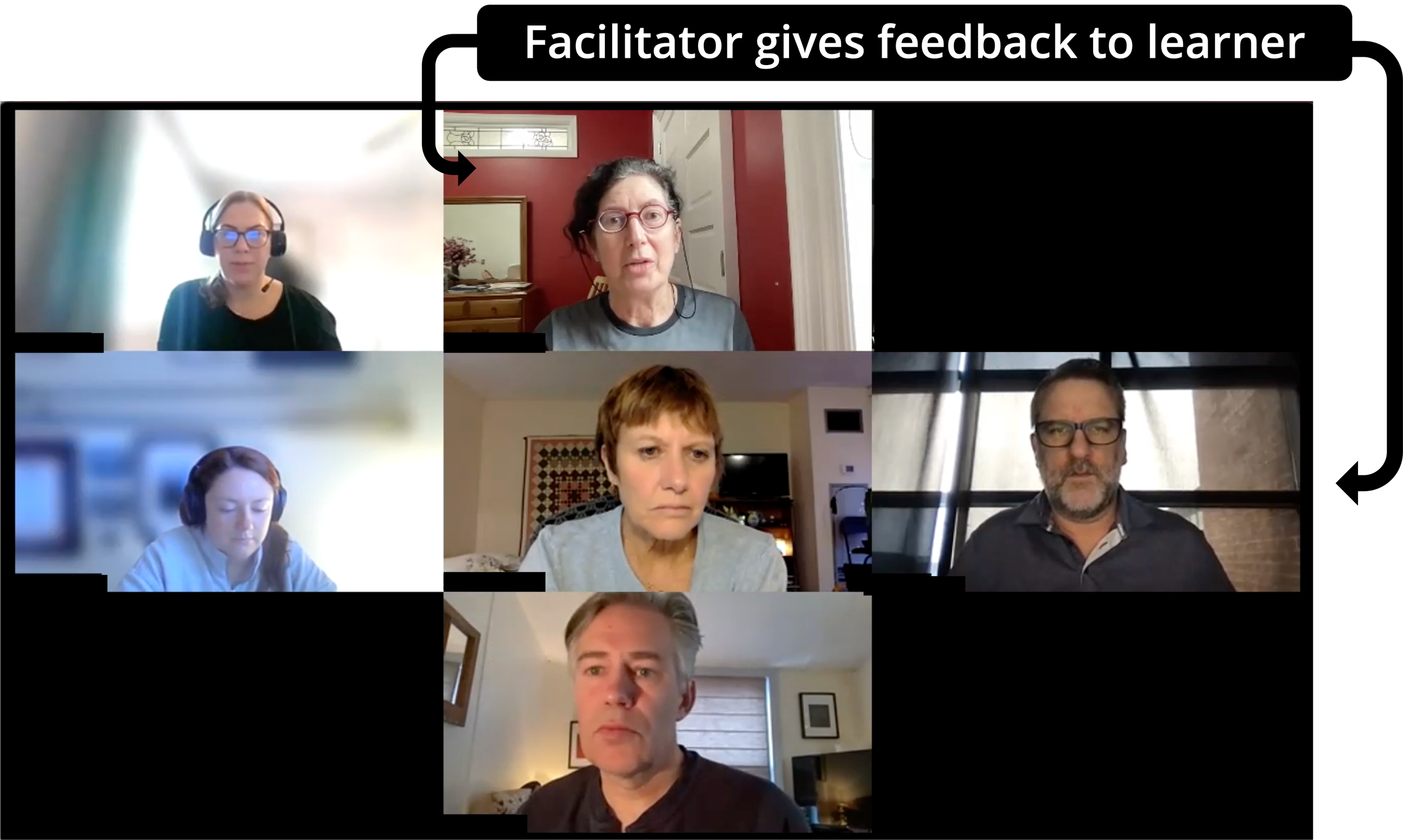
Helping clinicians become more skillful communicators.
The ABCs course was designed to help clinicians from any profession, in any setting, gain skills in discussing serious illnesses with patients and families.
By the end of the course, clinicians and clinician learners will:
Appreciate why skillful communication matters
Learn a set of principles that guide skillful communication
Adopt an approach to having conversations about serious illness
Practice communication skills for use when having these conversations
Learn why the ABCs course was developed, what it is, when & where it happens:
-
The ABCs was developed to help clinicians improve their confidence when discussing serious illness.
-
The course is comprised of:
Three virtual, small group workshops (with expert facilitators and standardized patients)
Two e-modules that are completed prior to each workshop
-
For 2025, workshops are July 18, Sept 10 & Nov 5.
Modules are available two weeks before each workshop.
-
Workshops are conducted via zoom and the modules are available online.
The ABCs course can be completed where ever you are.
-
For 2025, all first year postgraduate family medicine residents at the University of Toronto are taking the ABCs course.
What gap does the ABCs course fill?
The course complements other communication skills building programs by focusing on the fundamental communication skills that underlie all conversations.
With the ABCs, these skills are built longitudinally over time.
This allows time for reflection, time to try out new skills and time to truly change clinical practice.
Modules
Two modules are to be completed prior to each workshop. Roughly 45 minutes is needed to complete each module.
The material and skills addressed in the modules are directly reinforced in workshops through practice with standardized patients.
Workshops
Most of the workshop time is spent by learners practicing the skills addressed in the modules through interactions with a standardized patient.
Real-time feedback is provided by an expert facilitator.
Ninety minute virtual workshops (using zoom) are conducted as small groups with up to 8 learners.







